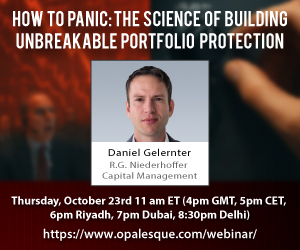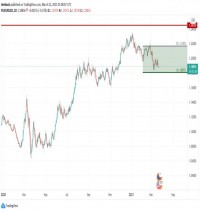|
From Ten Commandments to Exchange Traded Funds Various discussions, here and elsewhere, have touched on the concepts of ethics, social responsibility, governance, or lack thereof. Indeed Islamic finance often draws comparisons with ethical or socially responsible investing, since it contains references to various non-permissible activities which IFIs must abstain from. Similarly, this set of non-permissible activities represents the essence of equity screening (as it is implemented today) - where one identifies industries (i.e. tobacco) and practices (i.e. interest) which are to be avoided in order to setup an Islamic finance instrument/vehicle. These screens, which are both qualitative and quantitative, apply as much for a long-only ETF as they do for a multi-jurisdictional SPV concoction. Common to this theme of non-permissibility is the notion of a set of rules to guide us in life, and this is evident in how the Abrahamic religions observe the story of prophet Moses (prophet Musa in Islam) and the divine message that was revealed to him in Mount Sinai (in the Quran Tur Sinin) in the shape of the ten commandments. These are recognized as a moral foundation in Islam, Christianity, and Judaism. Oddly enough, this is an area that is seldom explored, as though openly discussing religion and different faiths is somehow off-limits or politically incorrect. Even more so when one considers that Moses is the most important prophet in Judaism and at the same time he is mentioned in the Quran over 500 times. In fact it is Moses who escorts prophet Muhammad (pbuh) through the heavens into the presence of God (where he pleads to reduce the number of daily mandatory prayers from fifty to five).
The narrative of Moses tells us of his 40 days of meditation, after which he returned to his people with the stone tablets that contained the ten commandments. While the exact number and order differs slightly, these commandments are generally divided in two: the first four statements refer to the relationship between God and humans, while the next six statements refer to the relationships between human beings. Unfortunately, Moses found his followers indulging in the worship of a golden calf (attributed in the Quran to an individual called Alsameri). Observing the sacrifices and the revelry, he broke the tablets in anger (another version mentions the tablets breaking themselves as the divine scripture witnessed the idolatry). After another 40-day period of penitence, God offered Moses to inscribe two other tablets as replacements. A question arises here as to who did the actual writing on the second tablets, God or Moses. In Deuteronomy it is God himself, whereas Exodus informs us that Moses was commanded to actually write the commandments. The difference might not be trivial.
Human Nature and The Advent of Positive Screens Does this mean that God needed to rethink his revelation to Moses? Was this original revelation flawed in some way that it needed to be re-written? Perhaps it was this worship of the false idol that alerted Moses to the fact that we, as frail humans, respond to penalties and prohibitions - as opposed to positive directives and guidance. After all, the statements are mostly negatory: do not kill, do not steal, do not bear false witness, do not commit adultery, and so forth. What a sentence of human nature that is - it is not about saving one another, sharing with each other, being compassionate, honest or truthful. It is the fear of being struck by lightning that keeps us in check. In fact we see this all the time in modern finance - the main effort of regulation is indeed a cat and mouse game. Regulators the world over must contend with the fact that practitioners will go to great lengths to circumvent the rules, evade taxes, avoid disclosure, manipulate confidentiality to trump transparency. Hence, the main approach of regulators is to command what we cannot do. Do not embezzle, do not cheat, do not be late in submitting form 21b. Money is the new golden calf and we have run out of tablets. So it seems that our friendly neighborhood regulator must either look for something more to ban or find a larger stick to smitten those who trespass. Here is where codes of ethics, industry
best practices, and positive screens have been latecomers in the financial
world. Whenever they arrive they are seemingly condemned to being unofficial
efforts, lacking industry-wide acceptance, or just plain unenforceable paper.
Could this be the reason that we debate substance over form? We keep wondering
what would happen in case of a sukuk default, perhaps what we need instead is a
good fat injection of scruples? Your feedback and comments are very important to us, please feel free to contact the author via email.
|
Opalesque Islamic Finance Intelligence
Editor's Note: Equity Screening and the Golden Calf By Bernardo Vizcaino, CAIA |
|





 RSS
RSS










